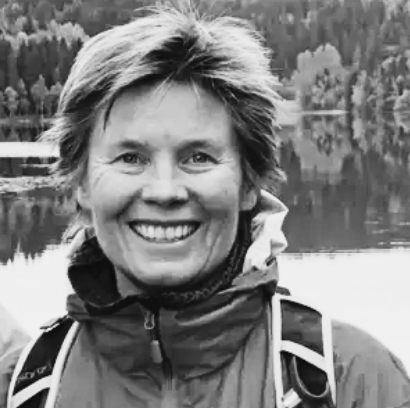
Astrid Bjørgen
Biography
Astrid Bjørgen is currently a PhD student at NTNU, Norwegian University of Science and Technology, Faculty of Architecture and Design, Department Architecture and Planning (https://www.ntnu.edu/iap). Her PhD focuses on urban mobility planning, urban freight transport and city logistics solutions. Urbanisation, densification, e-commerce and changes in land use pattern are trends all reshaping how people and goods move across the urban environment. Freight and passenger transport are mainly using the same infrastructures in cities. Main questions Astrid is working with is how to integrate freight transport into urban mobility patterns, taking into account a quest for more liveable and sustainable cities. Furthermore, the research question is about how local authorities may govern urban areas and manage the integration of transport policy and land use into local planning processes.
Next to being a PhD student, Astrid is a senior advisor at SINTEF. Having experience as a research manager at SINTEF she has been a project manager for several projects. Facilitating efficient and environmentally friendly urban freight distribution and interaction between private and public stakeholders has been her main area of interest. The project Green distribution in Oslo to be mentioned www.sintef.no/gbo
In line with the PhD trajectory, the purpose and objectives of the visit in Brussels will mainly consist of looking into ongoing processes in the city of Oslo and the city of Brussels. By comparing the planning processes on urban mobility issues within the two cities, knowledge will be transferred.
The City of Oslo is working on a transformation process developing the city centre, in order to achieve a more appropriate balance between city life, mobility and public health. Oslo is awarded the prestigious European Green Capital title for 2019 by spearheading green urban development. The aim is a city centre without personal car-driving (car free city life), while increased walking, biking and public transport is facilitated. At the same time there is a need to facilitate for increased urban activities and liveability, which demands a growing amount of goods and services that need to be supplied, while waste needs increasingly to be removed. The first move in Oslo is to drastically reduce parking lots, preventing cars from reaching the centre, while at the same time improving the public transport service and creating at least 60 kilometres of bike paths that are added to the many existing ones. In Brussels, a new mobility plan (GOOD MOVE) is being developed, taking into account also the freight part. The development has been in cooperation with many stakeholders. The idea of the fellowship would be to compare the urban planning processes between the two cities, to see how participation of stakeholders is organised and how freight is integrated with passenger transport. This comparison will enable to learn from each other, see how sustainable mobility planning could be enhanced, and to organise a workshop where the findings of the study will be discussed with city planners and other stakeholders in both cities.
